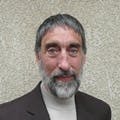By recognising the crucial contributions of American Laureate Arthur Rosenfeld - the Grandfather of Energy Efficiency - to the world’s energy security, the Global Energy Prize has affirmed the importance not only of developing new energy sources but of husbanding those resources as responsibly as possible.
During the past thirty years, most areas of the United States have seen per capita electricity demand rise by about 50 per cent. The glaring exception to this statistic is California, where demand has remained stable for the last three decades. There is one man who has been recognised as the leading cause of this happy anomaly: a physicist named Arthur Rosenfeld.
The title of Grandfather of Energy Efficiency is one that fits Dr. Rosenfeld like a glove. As the last graduate student of the legendary physicist Enrico Fermi, one might have thought his career would be a story of high-energy physics, fission research, and the like. But in 1975, at the age of 48, Rosenfeld founded a group at the University of California in Berkeley that became the Center for Building Science.
In the Seventies, nuclear power was building fast and promising a world of energy abundance. Yet even in that environment, Dr. Rosenfeld realised the importance of energy conservation. He recognised the vast amounts of energy consumed in America, whose population was then slightly less than 6 per cent of the world’s total. Developed countries had similarly burgeoning energy needs, and if the billions of people living in energy poverty were to have any hope of an energy-rich future, the demand would be staggering. Whatever energy generation could be mustered to meet that future demand, efficient use of it would make that formidable task considerably more feasible.
“Art” Rosenfeld’s team of researchers at UC Berkeley eschewed a narrow focus, examining all the areas where people consume energy. They tackled a variety of these at once, from electricity usage to heating and cooling of structures. The denizens of the Center for Building Science explored new ways of making windows, novel methods of insulating buildings, anything that would lead to diminishing energy consumption without necessarily undermining the experience of living in an energy-rich society.
It has been said that Art Rosenfeld showed how to save so much energy that he had saved his fellow citizens a trillion dollars by 2010. Probably the most dramatic development coming out of his lab was the invention of the compact ballast that led to the creation of the compact fluorescent bulb. These bulbs are so far beyond the old incandescent variety in terms of saving energy and reduced heat generation that some countries are banning incandescents altogether. With no disrespect to Thomas Edison, it was high time for advancement in the field of lighting.
After developing a great variety of energy efficiency technologies, Rosenfeld was duly recognised for his accomplishments and was appointed to the California Energy Commission, where he served during the first decade of the new century. His work contributed to ever-better building codes for new structures in the state of California. Dr. Rosenfeld’s current passion is enlightening policymakers to the benefits of using white roofs to reflect sunlight and reduce the heating effect normally experienced with dark roofs. The result of such a change is so impressive that building codes are already beginning to be changed to take advantage of this idea.
Art Rosenfeld has received many awards for his important achievements, pioneering advancements in energy efficiency that are applicable around the world. Being honoured with the Global Energy Prize will introduce him and his work to an international audience and can serve to improve energy efficiency as nations all over the planet strive for a higher standard of living. His work will make those goals far more attainable.
Russia’s highest honour for advancements in the field of energy technology reveals a broad understanding that we’re all in this together, and that not only energy resources but the entire range of natural resources must be managed with care and resolve.
This commentary is part of Eco-Business’ interactive “ask the energy experts” event being held in partnership with the Global Energy Prize. To post your tough questions to Tom and the other panelists, click here.
Tom Blees is an advanced energy systems consultant from California. He is the author of Prescription for the Planet – The Painless Remedy For Our Energy & Environmental Crises. Blees is president of The Science Council for Global Initiatives [www.thesciencecouncil.com], and is a member of the Global Energy Prize selection committee.
About The Global Energy Prize
The Global Energy Prize is one of the world’s most respected awards in energy science, awarding over US$1million every year for outstanding energy achievements and innovations.
Thus far, the Prize has been granted to 24 scientists from around the globe, including past Laureates from the US, Great Britain, Canada, France, Germany, Iceland, Ukraine, Russia, and Japan. The President of the Russian Federation participates in each year’s award ceremony held at the conclusion of a week-long celebration of the awardees’ work, Laureates’ Week. Other world leaders who have supported the prize include the former US President George W. Bush, former British Prime Ministers Tony Blair and Gordon Brown, former French President Jacques Chirac and current Canadian Prime Minister, Stephen Harper.
The Global Energy Prize rewards innovation and solutions in global energy research and its concurrent environmental challenges. The degree to which a development contributes to the benefit of humanity is a key driver in deciding the recipient of the Prize.
To join the debate, click here.

















